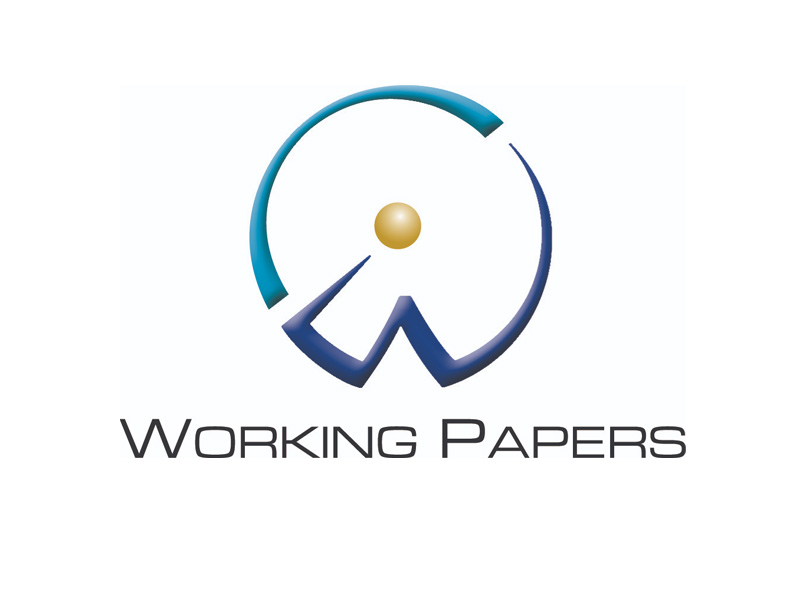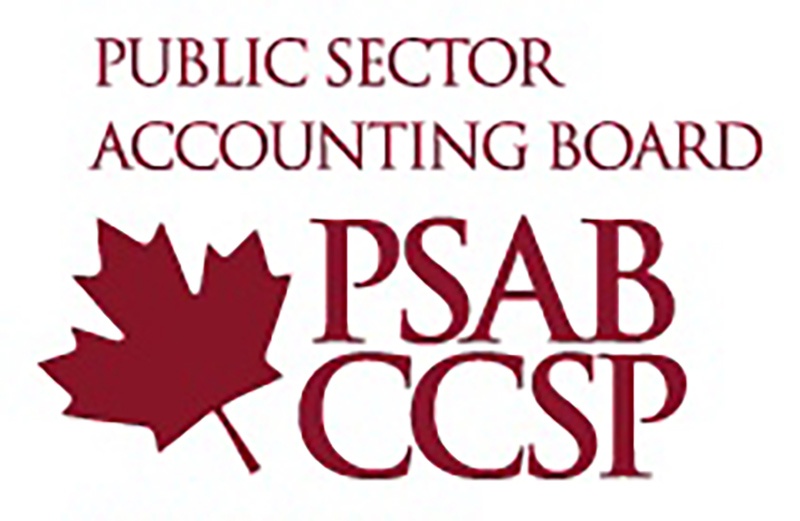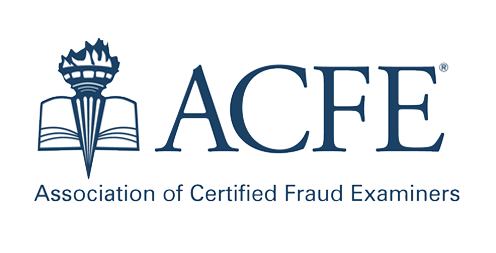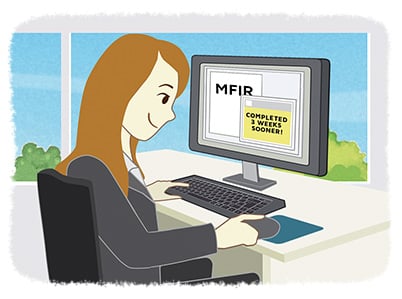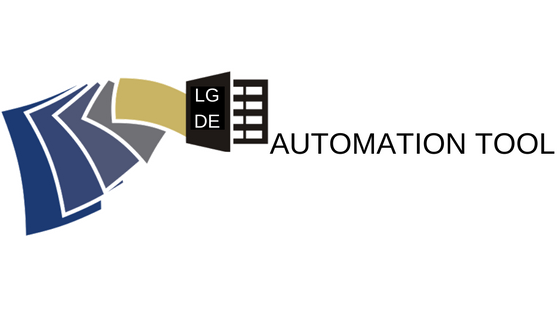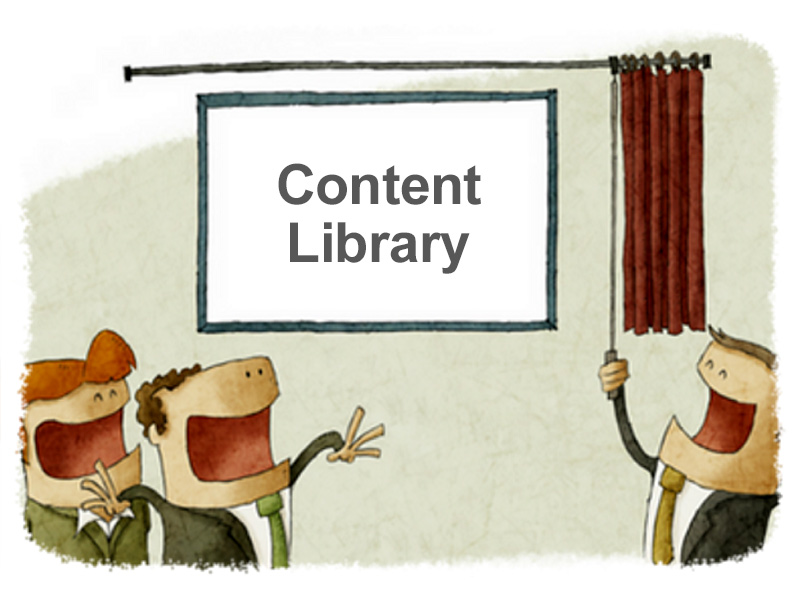What You Need to Know about 64-bit Working Papers
- Darryl Parker
- What's New
- minute(s)Recently CaseWare International sent out notification that a new version (2016.00.115) was released in both a 32-bit version and for the first time ever, a 64-bit version. Likely, two questions immediately arise for you: Should I upgrade to 2016 at all? Which version (32- or 64-bit) should I upgrade to? The answers to both of these question need a bit of consideration. 1) Should I Upgrade to Working Papers 2016? If you are in the middle of year-end / quarter-end or other significant reporting period - do not upgrade now. Otherwise, the short answer is yes. There are 3 major reasons why: CaseWare Working Papers 2016 has a variety of improvements and enhancements over the prior versions of the software. You should review the Enhancement tab of the Working Papers page on CaseWare's web site and determine if anything there is a real game changer for the way you use the software. Another important consideration is what other products from CaseWare International you use. Their latest versions may require you to have Working Papers 2016. For instance, users of the Financials Template who want to upgrade to version 14 must have Working Papers 2016 as a technical prerequisite. Finally, all Working Papers users should keep in mind CaseWare International's technical support policy, which only extends back one major version. If you are currently using Working Papers 2014 or earlier, you cannot receive technical support. You should strongly consider upgrading as soon as possible. 2) 32-bit or the 64-bit Version? As we recently told you want to be using 64-bit. However, some of you may not be able to with your current computer. The first step is to check whether you can run the 64-bit version. If you are not sure how to check yourself - ask one of the FHB consulting team or your own IT department. Now, if you are able to run 64-bit software, Stop. Your current version of Working Papers is 32-bit. That means when it was installed it was almost certainly saved in a 32-bit directory (likely C:\Program Files (x86)\CaseWare). If you install the 64-bit version into this directory, the upgrade will run as expected. Your IT department may wish to install it in 64-bit location (C:\Program Files\CaseWare). If they do this, the 64-bit version will not replace your 32-bit version. You will wind up with a second version of Working Papers alongside the existing version. That can be confusing! Further, all your templates are installed in the 32-bit version directory and don't get moved to the other directory. If IT wishes to install into the 64-bit location the approach is simple: Repackage all templates Uninstall all templates after verifying your CWP files Uninstall 32-bit version of Working Papers Install 64-bit version of Working Papers Re-install templates into 64-bit path If you have any questions or concerns about the upgrade procedure, contact the FHB consulting team and we'll be happy to discuss! © 2025 FH Black Inc. All rights reserved. Content may not be reproduced, excerpted, distributed, or transmitted without prior written consent.
CaseWare has released a 64-bit version of Working Papers. This is excellent but some consideration is required for a smooth upgrade.
READ MORE
Navigating PSAB: Asset Retirement Obligation Standards
- Bill Cox, BDO
- PSAB
- minute(s)Could Be Some Big Changes - And Some Unexpected Ones How Did We Get Here? The relatively new[1] Public Sector Accounting Board (“PSAB”) standard “PS 3260 Liability for Contaminated Sites” turned out to not have much of a financial statement impact for most governments and government organizations. Certainly the Federal, Provincial and Territorial Governments ran into some of the most significant challenges. But most others were not faced with hugely significant liabilities to report. Likely the most significant reason for this is that PS 3260 applies, for the most part, to assets that are not in productive use. It was a logical progression for PSAB to consider whether standards were required for Asset Retirement Obligations (“AROs”). That is, standards that apply to assets that are in productive use. In addition to being a logical progression, many government organizations that moved to Public Sector Accounting Standards (“PSAS”) recently [2] had been applying ARO standards pursuant to the previous accounting framework they had been following. It was time for PSAB to look to see what, if any, standards were required in this area. An ARO project was set in motion, a task force put to work, and a Statement of Principles issued in August 2014. The main features of the Statement of Principles were: Legal, constructive and equitable obligations could create an ARO. The carrying value of the tangible capital asset is increased by the ARO and expensed through amortization of the asset. Subsequent remeasurement of liability would require adjustment to carrying value of the asset if it is still in use. Post-retirement operation, maintenance and monitoring form part of the ARO. A present value technique is often the best method with which to estimate the liability. In the period since the issue of the Statement of Principles the task force has been reviewing responses and developing a proposed standard. Expect an exposure draft in December 2016. Does It Make Sense To Have Different Standards For Similar Types of Liabilities? When the ARO standards arrive there will be three PSAS standards that deal with items that, at least on the surface, appear to have some similarities. These will be: - the pending ARO standard - the recent PS 3260 Liability for Contaminated Sites standard - and long-existing PS 3270 Solid Waste Landfill Closure & Post-closure Liability standard Each of these standards deals with situations related to clean up of land. On closer review though, it might be reasonable to consider Contaminated Sites as the odd one out. This standard deals with existing contamination as opposed to the other standards which deal with anticipated future costs. But, the requirements for closure and post-closure activities and monitoring of a landfill are identical concepts to those of AROs. Should they not then have the same accounting requirements? Accounting for Landfill Obligations The current Landfill Liability section has some similarities and some differences to the ARO proposals. Likely the most significant difference is that estimated liability amounts are not capitalized to an asset. Why is that? Quite simply the standard came into play in 1998 - a full 11 years before the adoption of PS 3150 Tangible Capital Assets. Capitalization really was not an option at that point. It is only logical that the ARO Task Force will consider whether there should be harmonization of the ARO and Landfill Liability standards. What Would a Harmonized ARO/Landfill Liability Standard Look Like? At first glance, one might expect that the liability amount would not change by the applying ARO concepts to landfill liabilities. After all, both standards suggest that you may want to look at present value techniques to account for future obligations. Yet, there could be a distinct difference in one area. Change could occur in accounting for costs that will be incurred regardless of the level of activity of the landfill. A portion of capping, closure and monitoring costs will be incurred whether the landfill contains 1,000 tonnes of waste or 100,000 tonnes. These “fixed” costs would likely be immediately capitalized at the time of opening the landfill under an ARO standard. Under the current Landfill Liability standard these costs, like those related to volumes, are accounted for as the capacity of the landfill is used. The impact of this different treatment would be an increase in a government’s Net Debt. Net Debt is an important indicator, and one that is watched by many, including bond rating agencies. This possible outcome is one that should be considered so that it does not come as surprise to watchers of the government. Explanations should be made in budget documents, annual report Financial Statement Discussion and Analysis, and other relevant reports and communications. Landfill closure and post-closure costs that are variable to volumes would likely be accounted for similarly under an ARO standard as they are under the current Landfill Liability standard. The liability related to these costs increases proportionate to volumes. But, of course, as the volume housed in the landfill increases the future life of the landfill decreases - it is becoming more full. Thus it does not make sense to capitalize these costs to the asset. Instead such amounts would be expensed as the capacity is used - exactly analogous to the current Landfill Liability standard. A Rudimentary Example It is always difficult to discuss accounting results using just words, so it may be best to look at a rudimentary example. Consider the following fact pattern: Assumptions Item Cost/Factor Cost of closure $10,000,000 Portion of closure costs not impacted by volume $4,000,000 Annual post-closure monitoring $50,000 Monitoring period 15 years Life of landfill 10 years Discount rate 5% Engineering cost inflation 3% Capacity usage Evenly over life The resulting differences in approach between possible ARO treatment and current Landfill Liability standard can be significant in impact to liabilities and net debt. Impact at Different Points Item Current Standard ARO Treatment Difference Year 1 Liability $920,572 $4,039,254 $3,118,682 Year 5 Liability $5,594,807 $7,700,794 $2,105,987 Year 9 Liability $12,240,941 $12,752,909 $511,968 Year 10 Liability post closure $841,933 $841,933 $0 Year 15 Liability $681,423 $681,423 $0 Year 1 Expense $920,572 $920,572 $0 Year 5 Expense $1,332,097 $1,377,762 $45,665 Year 10 Expense $2,040,157 1,874,709 ($165,448) Year 15 Expense $36,050 $36,050 $0 Year 1 TCA $0 $3,118,682 $3,118,682 Year 5 TCA $0 $1,732,601 $1,732,601 Year 10 TCA $0 $0 $0 The Exposure Draft is Coming! The take away from all this is that those governments with landfills should be paying particularly close attention to the development of the ARO standards. As before noted, the first Exposure Draft is expected in December 2016 and this will create an excellent opportunity for interested parties to closely review the proposals. Most importantly, interested parties should respond with their critiques and suggestions. Even a response that supports the Exposure Draft without reservation is appreciated by PSAB because there is often a relatively low response rate to Exposure Drafts from those that will actually have to implement the proposals. Effective for fiscal years beginning on or after April 1, 2014 ↩ Government not-for-profit organizations, for example, generally adopted PSAS for their 2012 fiscal year. ↩ Provided as a Guest Post, by Bill Cox Bill Cox is a Partner in Audit and Assurance and has been with BDO Canada LLP for over 20 years. Bill’s practice is focused on work with government, not-for-profit organizations and financial institutions. He also maintains a significant small/mid-sized business client base. © 2025 FH Black Inc. All rights reserved. Content may not be reproduced, excerpted, distributed, or transmitted without prior written consent.
When the Asset Retirement Obligation standards arrive there will be three PSAS standards. Bill discusses what you can expect from these standards.
READ MORE
In Control: Why Monitor When We Know it is Broken?
- Holly Ueland
- In Control
- minute(s)In part 1 of this series, we discussed how continuous controls monitoring is incredibly valuable for management. In this installment of the series, we address a recurring question we hear. When chatting with clients we hear "Listen, I know our processes is broken. Why waste time monitoring it when we could spend that time fixing it? Aren't we checking the pulse of a dead patient?" This statement does seem to have some logic to it. But it over-simplifies the situation. The reality is that monitoring your control activities is an integral part of the effort to fix them. When we say "broken" we typically mean that the process is failing to achieve its objective. Translating this into Internal Control terminology we mean the control activities are failing to mitigate risk. Business processes are often very complex with many steps, risks, controls, stakeholders and participants. When we say "the process" is broken we mean one or more risks are not being controlled. But which controls? Why? That information is going to be critical in determining how we fix "it". Monitoring controls that we suspect are not functioning can tell us which controls are failing and why. This information is critical to making good decisions about how to resolve the issue: Further, once we resolve the issue (Repair, Implement, or Remove) we will want to monitor to ensure new problems don't crop up or old ones reocur. If you go in for heart surgery, Doctors want to keep a close eye on you for some time thereafter! How does your organization determine what expected controls are for various processes and determine which ones to monitor? Through best practices, which we discuss in part III of this series. © 2025 FH Black Inc. All rights reserved. Content may not be reproduced, excerpted, distributed, or transmitted without prior written consent.
The importance of Monitoring is often overlooked in internal control systems. Even when processes are"broken", it turns out monitoring is essential.
READ MORE
6 Key Fraud Findings for Government Finance Officers
- Jamie Black
- In Control
- minute(s)Reminders are often critical. I know I have a 9am meeting but without the reminder, I likely would be buried in some other task and miss my conference call. This article provides a quick summary of the recent Association of Certified Fraud Examiners (ACFE) 2018 Report to the Nations on Occupational Fraud and Abuse and acts as a reminder. We should all be reminded how critical strong internal controls are for your organizations success. Further, they form the front line protecting your organization from fraud and abuse. The had several findings that will be very interesting to finance managers in local government. The 2018 report is based on the results of the 2017 survey. As part of the survey, respondents were asked to provide a detailed narrative of the single largest fraud case they had investigated since January 2014. Respondents were then presented with 81 questions to answer regarding the particular details of the case, including information about the perpetrator, the victim organization, and the methods employed, as well as fraud trends in general. While the report is very interesting from many respects, there are 6 points we want to highlight. 6 Findings relevant for Government Finance Officers The most prominent organizational weakness that contributed to the frauds in the study was a lack of internal controls, which was cited in 29.3% of cases, followed by an override of existing internal controls, which contributed to just over 20% of cases. Government and public administration experienced the third highest incidence of losses due to error and fraud, with a median loss of $109,000/ incident. Small organizations had a significantly lower implementation rate of anti-fraud controls compared to large organizations. Small government organizations are more susceptible to fraud. Out of all the government bodies included in the report, from federal to local, small organizations (those with fewer than 100 employees) accounted for the greatest number of fraud occurrences overall. In addition, of the fraud occurrences in small organizations, those involving cash occurred over twice as frequently. The presence of anti-fraud controls was correlated with lower fraud losses. ACFE compared organizations that had specific anti-fraud controls in place against organizations lacking those controls and found that where controls were present, fraud losses were 14.3%–54% lower Anti-fraud controls also correlated with much faster detection. Frauds were detected 33.3%–50% more quickly if the organization used such controls. The report also notes that total losses represented in the study were actually significantly higher. However, to conservatively report loss amounts, the top and bottom 1% of results were excluded from the total loss figure. Even viewing the losses reported through a conservative lens, a typical loss of $108,000 per fraud can be devastating to many organizations, especially when combined with the indirect fallout that often accompanies a fraud scheme. Join us for a free webinar and see how CaseWare's Continuous Controls Monitoring will improve your organization's internal control. We’ll examine the ever-evolving risk profile that governments experience and also demonstrate the significant benefits available (timeliness, accuracy, and cost-effectiveness) of automating monitoring and enforcement of internal control (Continuous Monitoring) using CaseWare solutions. © 2025 FH Black Inc. All rights reserved. Content may not be reproduced, excerpted, distributed, or transmitted without prior written consent.
2018 ACFE Report outlines several key points for government finance officers interested in internal control and eliminating fraud.
READ MORE
Financial Statement Automation Saves Time & Money for Lethbridge
- Jamie Black
- Success Stories
- minute(s)Lethbridge, is a commercial, financial, transportation, and industrial centre with a population of 89,000. The City of Lethbridge provides both essential and nonessential services to its residents, from fire and emergency response to museum and library operations. The City’s Financial Services department is staffed by a team of professionals charged with bringing efficiency, accuracy, and transparency to the organization. CaseWare Working Papers and Financials are the tools the department relies on to fulfill that goal. More and More Spreadsheets As the PSAB (Public Sector Accounting Board) requirements changed, organizations like the City of Lethbridge were forced to change the presentation of their financial statements. Many turned to spreadsheets to accommodate the changes. Municipal governments within the province of Alberta are required to file a Municipal Financial Information Return (MFIR), which must be submitted to the Municipal Affairs office along with audited financial statements by May 1 of each year. At the City of Lethbridge, preparing it involved a multitude of spreadsheets and the dedicated work of one of the City’s most tenured employees. The City of Lethbridge has been using CaseWare Working Papers for many years, although in a limited capacity. “We were just using CaseWare for our balance sheet items,” recalls Tricia Fraser, Financial Reporting Supervisor for the City. “Essentially it was serving as a document holder only. We created our financial statements and other financial reports in Excel®. We needed a better way, as it was just too manual and time consuming.” Embracing Efficiency The City engaged F.H. Black & Company, a CaseWare certified consultant, to help it gain efficiency and reduce manual data entry tasks. “F.H. Black has been a tremendous resource,” says Fraser. “Their knowledge and experience with CaseWare has helped us make more strategic use of the product.” Financial Statements Completed in Record Time Using CaseWare Financials the City tackled financial statement automation. Now the City’s annual financial statement is completed substantially faster than before. “In fact, I had staff asking me what we had forgotten because they were so surprised that we were done so quickly.” That time savings is being put to productive use, Fraser says. “We used to spend so much time preparing documents and assembling the report, that we had little time to analyze the data and look for improvements. CaseWare buys us strategic planning time, time where we can consider what didn’t work, what worked well, and what we can do better. That’s priceless.” Three Weeks Saved in Production of MFIR F.H. Black showed the City how to use CaseWare Working Papers and CaseWare Connector to populate the MFIR report directly. “As a test, we prepared last year’s MFIR both ways, the old way and using CaseWare for the portions we automated,” says Fraser. “Both ways produced the exact same result, only CaseWare did it instantly. Now, instead of handing our auditors a series of spreadsheets and a binder of supporting documentation, we will hand them a CaseWare file.” Fraser says this single change will likely result in lower audit fees, and enables the City to complete its MFIR three weeks sooner than in the past. Improved Accuracy and Security Another benefit the City is realizing through CaseWare is increased accuracy. In the past, personnel would be assigned to troubleshoot and validate the Excel spreadsheets. “Now, when something is out of balance, we can easily follow the trail to the source and make the corrections,” says Fraser. “And because there is no manual input, the opportunity for errors is greatly reduced.” The move to CaseWare Financials has led to improved data security. “I used to be scared to give anyone else access to the spreadsheets, fearing someone would change something and I wouldn’t know who did it or why,” Fraser explains. “In CaseWare, I’m able to set up security so that I can control who has access to what. Now, we have 20 people working in CaseWare, and the data is accessible, auditable, and secure.” Leverage the Investment The City is leveraging its use of CaseWare by using it to produce other financial reports, including sections of its unaudited financial statement that is sent to council prior to the publication of the audited report. “This report is due during our busiest time of the year,” notes Fraser. “We were able to put it into CaseWare and the time savings is unbelievable. Frustration levels of staff during this crunch time are dramatically reduced.” Fraser and her family are relocating soon, and as she discusses new employment opportunities with potential employers, she is certain to ask one question: “I always ask if they use CaseWare. If the answer is no, the conversation is over.” © 2025 FH Black Inc. All rights reserved. Content may not be reproduced, excerpted, distributed, or transmitted without prior written consent.
The City of Lethbridge uses CaseWare Working Papers to automate annual financial statements and the MFIR, driving significant time savings and reducing cost.
READ MORE
Continuous Controls Monitoring is Management's Best Friend
- Holly Ueland
- In Control
- minute(s)Being audited is hard work! Managers spend a lot of time getting prepared, answering questions and generally feel like they are under a microscope. Despite this, most acknowledge that audits are valuable. How can you get the benefits that audits provide without the pain? Continuous Controls Monitoring (sometimes referred to by the acronym CCM or just shortened to continuous monitoring)! To understand why this is true, we need to understand a bit about the similarities and differences between audits and CCM. Both include the performance of assessments. One difference is ownership of the assessment process – the auditor is responsible for auditing, while monitoring is owned by management. You could say monitoring is auditing performed by management. CCM also provides several benefits. Easier (and Cheaper) Audits Continuous controls monitoring and external audit often directly impact each other. If you have an undocumented, unmonitored set of internal control activities, you should expect your external auditor to perform extensive sampling and testing. That leads to increased time and effort for the auditor, increased professional fees and increased support work for you. Contrast that with an organization who has very strong monitoring of their internal controls, excellent documentation of the exceptions found and their remediation. Your auditor can review this evidence of your strong internal control system and conclude that there is minimal risk. That means less testing and time on their part, reduced professional fees and less work for you. With continuous monitoring, your audit reports can change from a laundry list of errors made throughout the prior year to a discussion of improvements in your management and control processes to better prevent, detect and remediate errors in the future. Timely and Efficient Management In addition to reducing the number of tests being performed (which should yield less expensive audits), continuous monitoring provides another significant benefit - timeliness. CCM occurs alongside business processes, so identified issues can be addressed proactively before it becomes a major (public) problem. Consider the difference between: finding and putting a hold on a suspected duplicate invoice payment before it is paid vs. detecting the payment months after it has occurred during an audit and then trying to recover funds from the vendor. By monitoring your internal control activities continuously, you have the opportunity to manage your processes as they are happening, rather than retrospectively. Check out the second part of this blog series to find out why continuous monitoring is even more important when we know controls are broken. © 2025 FH Black Inc. All rights reserved. Content may not be reproduced, excerpted, distributed, or transmitted without prior written consent.
Continuous Controls Monitoring (CCM or sometimes Continuous Monitoring) provides a massive benefit to management AND simplifies the annual audit process.
READ MORE
LGDE Simplification for your BC Local Government
- Tricia Fraser
- What's New
- minute(s)We are happy to announce the release of a new member of our CaseWare Add-On Tools family. In addition to the requirement to present PSAB compliant statements, British Columbia Municipalities and Regional Districts must prepare the LGDE (Local Government Data Entry forms). This is annual requirement for BC local governments (under Community Charter section 167(4)) to be submitted to the Inspector of Municipalities. Unfortunately for those of us preparing this annual information, very typically we find that the grouping / presentation of information for the LGDE is substantially different from PSAB standards. FHB’s LGDE Automation Tool provides groupings to facilitate the simplification of the LGDE preparation. It also includes a complete package of leadsheets tied to these groupings which allow you to verify balances, add supporting working papers, reference and then sign off on your work on a line by line basis. Finally our tool replicates the data entry forms to facilitate easy data entry into the Ministry's website. Unfortunately the Ministry will not allow us to automate the upload of these values but our Automation Tool will help alleviate the agony experienced in painstakingly trying to prove agreement between your audited financial statements and the LGDE. Those ‘last minute’ adjusting journal entries from the auditor will no longer be an issue, just post your adjustments in the Working Paper File and the effects will roll out across your financial statements, notes, schedules and LGDE balances! © 2025 FH Black Inc. All rights reserved. Content may not be reproduced, excerpted, distributed, or transmitted without prior written consent.
The annual LGDE requirement for BC local governments can be largely automated with CaseWare Working Papers and our add-on tool.
READ MORE
CaseWare Feature Spotlight: Content Library
- Jamie Black
- CaseWare Feature Spotlight
- minute(s)CaseWare Working Papers is the first choice of finance professionals around the world for automating complex financial reporting. When spreadsheets are the problem, CaseWare's sophisticated features are the solution. We've developed this article series to outline many of these features for two reasons: so prospective users can appreciate all of CaseWare's power and to encourage existing users to maximize their utilization of the software. One of the CaseWare's features that will reduce time spent on the year end and yield better quality results is its Content Library. If you are used to maintaining your financial reports in spreadsheets, you know it is all up to you. You have to develop your own formats and content whenever there is a new pronouncement and you are responsible for updating and maintaining your own custom Excel worksheets forevermore. Rather than building your reports from scratch, you can leverage the power of CaseWare's platform for management and use of standard content. Major features include: Predefined & updated content - CaseWare Financials comes pre-packaged with extensive libraries of content that are pre-configured to use standard group codes. The library includes standard statements, schedules and hundreds of notes. There are different libraries (ASPE, GAAP, GASB & IFRS) and your annual software license provides content updates, providing you with tested and reviewed content to ensure compliance with new standards. Thus, when a GASB pronouncement dictates you need a new pension note, it is ready and waiting for you to insert into your financial statements. Add your own content - While the content library can certainly aid when a new report or disclosure is required, you can always add your own content to the library. This allows you to reproduce any existing statements or handle a special reporting requirement. Adding your content is simple and you can even integrate directly into the library's strong content management and organization features. © 2025 FH Black Inc. All rights reserved. Content may not be reproduced, excerpted, distributed, or transmitted without prior written consent.
Rather than building your reports from scratch, yourself, leverage the power of CaseWare Working Paper's GASBE / IFRS / ASPE content library.
READ MORE
Version 14 of CaseWare Financials Released
- Darryl Parker
- What's New
- minute(s)CaseWare Financials 14.00 Software: CaseWare Financials Prior Version: Financials 13.00 New Version: Financials 14.00 Release Date: August 23, 2016 There have been significant changes to the existing features. Here's a list some of the more noteworthy items: 1. For those reporting under GASB new cash flow worksheets by major/minor funds has been added: Statement of Cash Flows Proprietary Funds Non-major Enterprise Funds Combining Statement of Cash Flows Internal Service Funds Combining Statement of Cash Flows 2. New functionality in libraries: Tagging content to industries is now available for Template authors. See more… Content for additional statement areas can now be based on standard statement libraries. 3. DIY Tables Enhancements The Table Column Properties dialog now has a new Auto fit all columns option to redistribute column widths among remaining columns in a DIY table with skipped/hidden columns. See more… A new Switch entity/mapping selector locations option is now available to switch the location of the entity and mapping selectors in a DIY table.See more... The Replicate DIY table option has been expanded to support note and section libraries. See more... For a comprehensive list of new features and updates visit the CaseWare site here. © 2025 FH Black Inc. All rights reserved. Content may not be reproduced, excerpted, distributed, or transmitted without prior written consent.
CaseWare Financials 14.00 was released last week. Here's a list of some of the prominent new features and major changes to the software.
READ MORE
Wellington-Dufferin-Guelph Public Health Automates Financial Reporting
- Jamie Black
- Success Stories
- minute(s)Wellington-Dufferin-Guelph Public Health works to improve the health of 250,000 residents of Wellington and Dufferin counties and the city of Guelph with a wide range of health services and resources, including immunizations, dental care, parenting support services, travel information, and infectious disease control. With 230 employees spread across six locations and an annual operating budget of $27 million, Wellington-Dufferin-Guelph Public Health embraces technology and the efficiencies it can provide to enable it to devote more resources to its mission. CaseWare Working Papers and Financials are two pieces of technology the organization relies on to streamline their financial reporting. Working Papers for Municipalities “We implemented CaseWare in 2013,” recalls Shanna O’Dwyer, Manager of Finance for Wellington-Dufferin-Guelph Public Health. “My first year here at the organization I used Excel® spreadsheets - and a lot of them - to produce the annual financial statements. I remember being concerned through the entire cycle that something would get missed and not updated properly. It was a stressful time.” O’Dwyer had used Working Papers in her prior position with an accounting firm, so was familiar with the solution and its capabilities when she saw it in action at a Municipal Finance Officers conference. “I met F.H. Black & Company Incorporated at the conference and learned how they have successfully implemented CaseWare for dozens of municipal organizations like ours across Canada,” she says. “We determined CaseWare would be an ideal fit for us.” Professional Implementation The implementation went very well says O’Dwyer. “F.H. Black & Company was fantastic. They were highly organized and very methodical in their approach. They kept the project on schedule and saw that we were informed and involved throughout the process.” Wellington-Dufferin-Guelph Public Health also appreciated the easy access to members of the F.H. Black’s consulting team. “We are able to view their calendars online and book a time slot that’s convenient for us,” O’Dwyer says. “But if we have an urgent matter, they are always directly available.” Simplifying Complex Tasks After receiving training in the solution and the mechanics involved in generating the financial statement templates, O’Dwyer was able to create the organization’s templates herself. She then set about duplicating the prior year’s financial statements in Working Papers as a proof of concept. “F.H. Black & Company helped with the export of the trial balance data from our accounting system,” O’Dwyer says. “It’s complex data with many different departments, segments, and funds but with their help we got it done.” During the past fiscal year, Wellington-Dufferin-Guelph Public Health has made a number of changes to its financial statement layout. “F.H. Black & Company helped us modify the templates to meet our needs and we were good to go,” says O’Dwyer. “It would have been a nightmare to try to incorporate all those changes if we were still using spreadsheets.” In subsequent years, O’Dwyer anticipates the time savings that Working Papers will deliver will be substantial. “In a short time frame, we are able to produce accurate, consistent financial statements.” Quality, Confidence, and Control Using Working Papers has improved the quality of Wellington-Dufferin-Guelph Public Health’s financial statements and made them more consistent O’Dwyer says. “Before CaseWare, we were copying rows of data from our financial statements and dropping them into the spreadsheets. Now we establish the account groupings in CaseWare and it does the work for us. Changes made to the working papers flow to the statements so we are confident that it’s right.” Previously, Wellington-Dufferin-Guelph Public Health’s auditors would take the organization’s spreadsheet data and produce the financial statements for them. Now, the organization produces its own statements through Working Papers. “We feel we have much more control over the process now,” says O’Dwyer. Paperless Process O’Dwyer says the first year with Working Papers, the organization continued its practice of building a paper binder, but that they have now eliminated paper entirely. “CaseWare is so reliable and secure, and we are able to link various references to outside documents such as funding agreements, that we determined paper was no longer needed.” Streamline Quarterly Reporting Building on the successful roll out of Working Papers for its financial statement generation, Wellington-Dufferin-Guelph Public Health plans to expand the solution’s use to quarterly reporting. “We’re still doing this in Excel, and there’s no reason why CaseWare can’t be leveraged to help streamline this task as well,” says O’Dwyer. She concludes, “We are really pleased with CaseWare. It has proven to be a real asset to us, and the great support we receive from F.H. Black & Company makes it all the better.” Ready to learn more about what CaseWare® Working Papers could do for your organization? Join us for a free webinar. © 2025 FH Black Inc. All rights reserved. Content may not be reproduced, excerpted, distributed, or transmitted without prior written consent.
Wellington-Dufferin-Guelph Public Health automates financial reporting with CaseWare Working Papers and increases efficiency, effectiveness & reliability.
READ MORE

